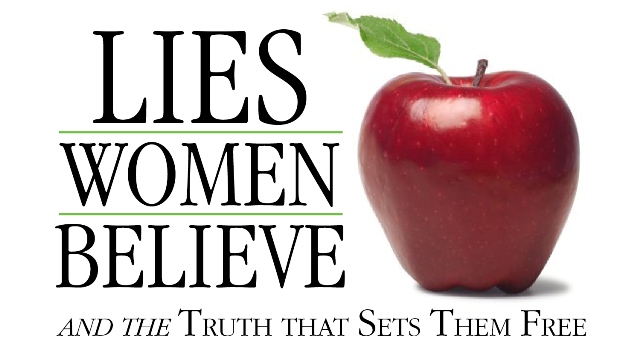If there’s one thing that doing all these reviews have taught me about writing non-fiction books, it’s to avoid getting repetitive in the last two chapters. A lot of what Nancy covers in this last part of Lies Women Believe she’s already been over in different ways before. However she’s not completely unoriginal, so let’s dive in.
IF MY CIRCUMSTANCES WERE DIFFERENT, I WOULD BE DIFFERENT
That she thinks the above is a “lie” … all I could do was laugh– mirthlessly. Honestly, I’m even a little surprised she was able to write this section with a straight face, because it seems really obvious to me that if our circumstances are different, we would be different. If I hadn’t been abused, I wouldn’t have PTSD. If I’d been treated for anxiety as a child, I’d already have coping mechanisms for it as an adult. If I hadn’t been homeschooled … and it goes on.
Granted, that’s not the direction that Nancy’s thoughts went, but she’s ignoring a mighty big elephant to do so. She talks about things like frustrated parents who supposedly “wouldn’t have lost [their] cool if [their] child hadn’t filled the dryer with water and painted the living room furniture with butter!” (218), and what pops out to me is that these people aren’t really talking about how patient (or whatever) they are overall, but that they are acknowledging things like stress is real. They’re saying “these circumstances aren’t ideal for me.”
I agree that things like your kids trying your patience doesn’t give you the right to treat them or other people poorly. Being an adult means managing these feelings and responding appropriately. But, not all situations are created equal, and we’ll see that come out in a bit.
I SHOULDN’T HAVE TO SUFFER
She focuses on the rhetoric of “prosperity gospel” proponents in this section, and on this I agree with her without reservation. If you haven’t seen John Oliver take down the various televangelists who made the prosperity gospel A Thing, then you should.
However, Nancy makes one mistake: she confuses people think they should always be perfectly happy with people generally want to avoid suffering. She paints this picture of how good it is that we suffer, that it makes us holy. This is nothing new for Christian rhetoric– I imagine almost all of us have heard something similar before.
I certainly don’t have a monopoly on suffering. But, one thing my life has taught me is that dealing with suffering is complicated. If you asked if me if I’d go back in time and stop myself from entering an abusive relationship, I honestly don’t know what I’d say. I ended up at Liberty because of the need to take my life in a different direction, and I met Handsome because I was there. My life with Handsome is pretty damn amazing.
But is being a rape and abuse victim “worth” this? I don’t know. What I do know is that I will do everything I can to make sure other people aren’t rape victims, and I’m concerned with this “suffering is good because it’s what makes us holy!” rhetoric. I want to make the world a “better place,” and that means eliminating suffering.
MY CIRCUMSTANCES WILL NEVER CHANGE, THIS WILL GO ON FOREVER
And by that she means:
The Truth is, a moment or two from now (in the light of eternity), when we are in the presence of the Lord, everything that has taken place in this life will be just a breath– a comma. (224)
This is another consequence of dualism: she reduces the value of this earthly, physical life in favor of the “light of eternity.” It’s a blithe dismissal of people like me, offering us nothing more than a “cheer up buckaroo, the next fifty years don’t really mean anything!” Except that they do, and we know that they do.
But that’s not my biggest problem with this. My biggest problem is that it naturally leads her to advocate that people stay in violent, abusive, unhealthy situations because, after all, if this “comma” of an experience doesn’t matter when compared to eternity, then we can put up with pretty much anything, right? A woman in a “painful” marriage, after listening to Nancy speak, says that “time is short and eternity is long” (224) and decides that she’s not going to do anything about the pain in her life.
I JUST CAN’T TAKE ANY MORE
First off, this section completely ignores those who struggle with suicidal ideations; she dismisses people who have chronic and severe depression with “all of us have had seasons when we feel we just can’t keep going” (227).
I mentioned earlier that Nancy seems unaware that not all situations are created equal, and we see that here:
- I can’t take one more sleepless night with this sick child.
- I can’t continue in this marriage.
- I can’t bear to be hurt one more time by my mother-in-law.
- I can’t keep making it with three teenagers and a mother with Alzheimer’s living in our home.
Some of the things she’s described in this chapter are flexible, and some are not. Staying up with a sick child is a fact of life, and you push through it– but that doesn’t mean you can’t ask for help or do something to help yourself. My mom took care of her grandfather with dementia and it was hard; she made sacrifices of time and even health.
But a mother-in-law who hurts you? That, you do have choices about. You can set boundaries– there’s nothing written in the universe that says you must speak to any person, even your mother-in-law. You can leave a bad marriage.
Nancy, however, sees all these things as the same: all must be endured. This is the natural conclusion of her “suffering makes us holy!” thinking. Even wanting to escape an unhealthy or outright abusive situation makes us a sinner in her eyes.
IT’S ALL ABOUT ME
This is the most repetitive section– in a way, the entire book has been about this for Nancy. Two things lept out, though. The first one was when she was quoting Larry Crabb:
Helping people to feel loved and worthwhile has become the central mission of the church … Recovery from pain is absorbing an increasing share of the church’s energy. And that is alarming. (229)
I spat out my tea. Because what is this. It’s so theologically awful it compelled me to look up who Larry Crabb is– and oh, look, he’s the spiritual director for the American Association of Christian Counselors. A man whose entire profession is based on helping people said that about how “alarming” it is for the church to focus on the how Jesus said “they shall know you by how you love one another.” I’m sorry, if you have a problem with the church loving people then I don’t know what to tell you.
The second bit was this:
Over the next several years, her marriage and family life became increasingly rocky. There was a vicious cycle of abusive behavior and language … At one point, Cindy left her husband for two weeks, intending to divorce him; through a series of circumstances, God gave her a new compassion for him, and she returned home. (232)
She tells this woman’s story for three pages, and it is clear that her marriage never improves and her husband remains abusive– and her children refuse to have a relationship with either of them, unsurprisingly. Nancy also makes it clear that she thinks this woman’s actions are praiseworthy.
It fits perfectly into her permanence view of marriage, and it demonstrates how frustratingly clueless Nancy is. That “God gave her a new compassion for her abusive husband” is such bullshit, and it’s rage-inducing. Every abused woman thinks this. God had nothing to do with it. Women attempt to leave abusive relationships six or seven times on average because they have “compassion” for their abuser. Their abusers do everything possible to make absolutely certain their victims feel this way. We go back over and over because we’re convinced that our abusers need us.
This wasn’t compassion, and to refer to an expected result of being abused (seriously! This is Abusive Relationship 101-level shit right here) as something God did is just … it’s sick.
Thank God we only have one more week of this.



